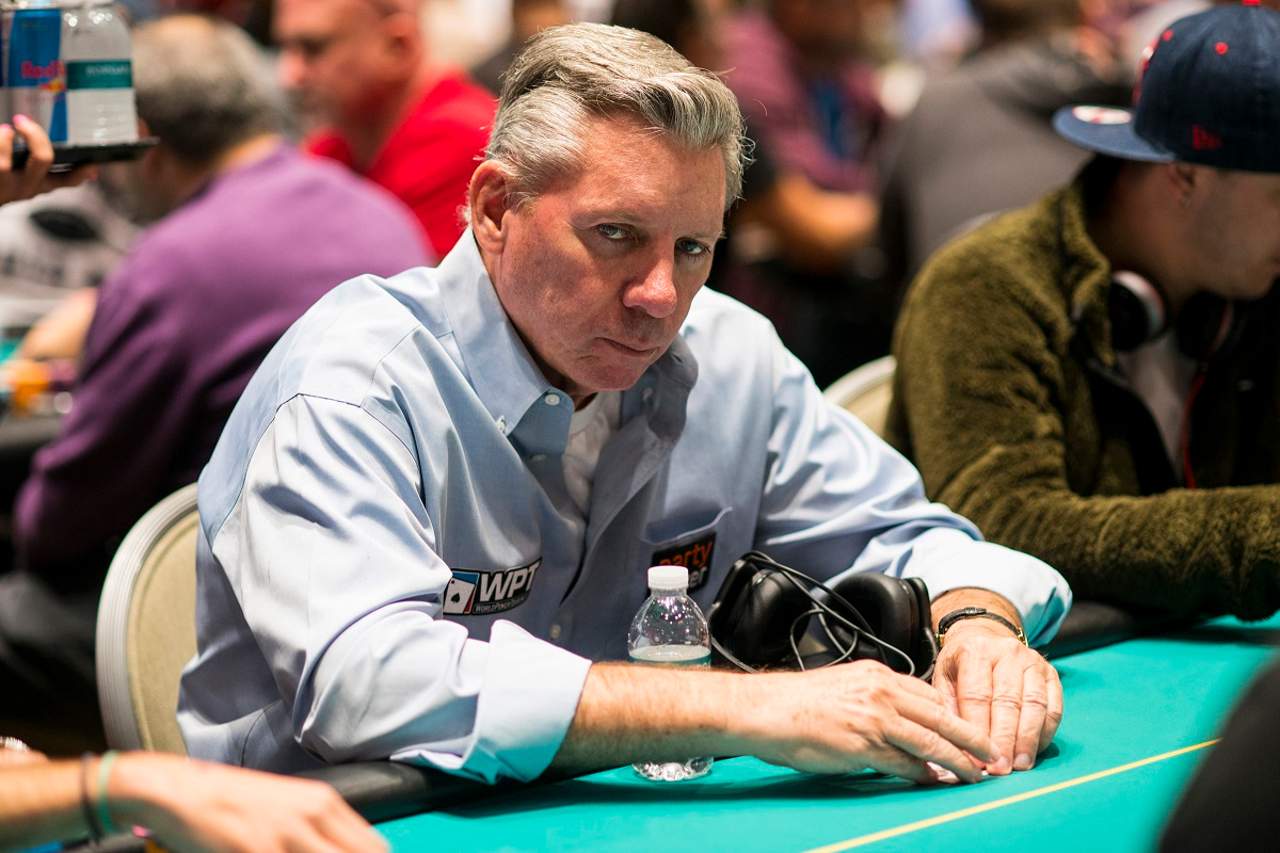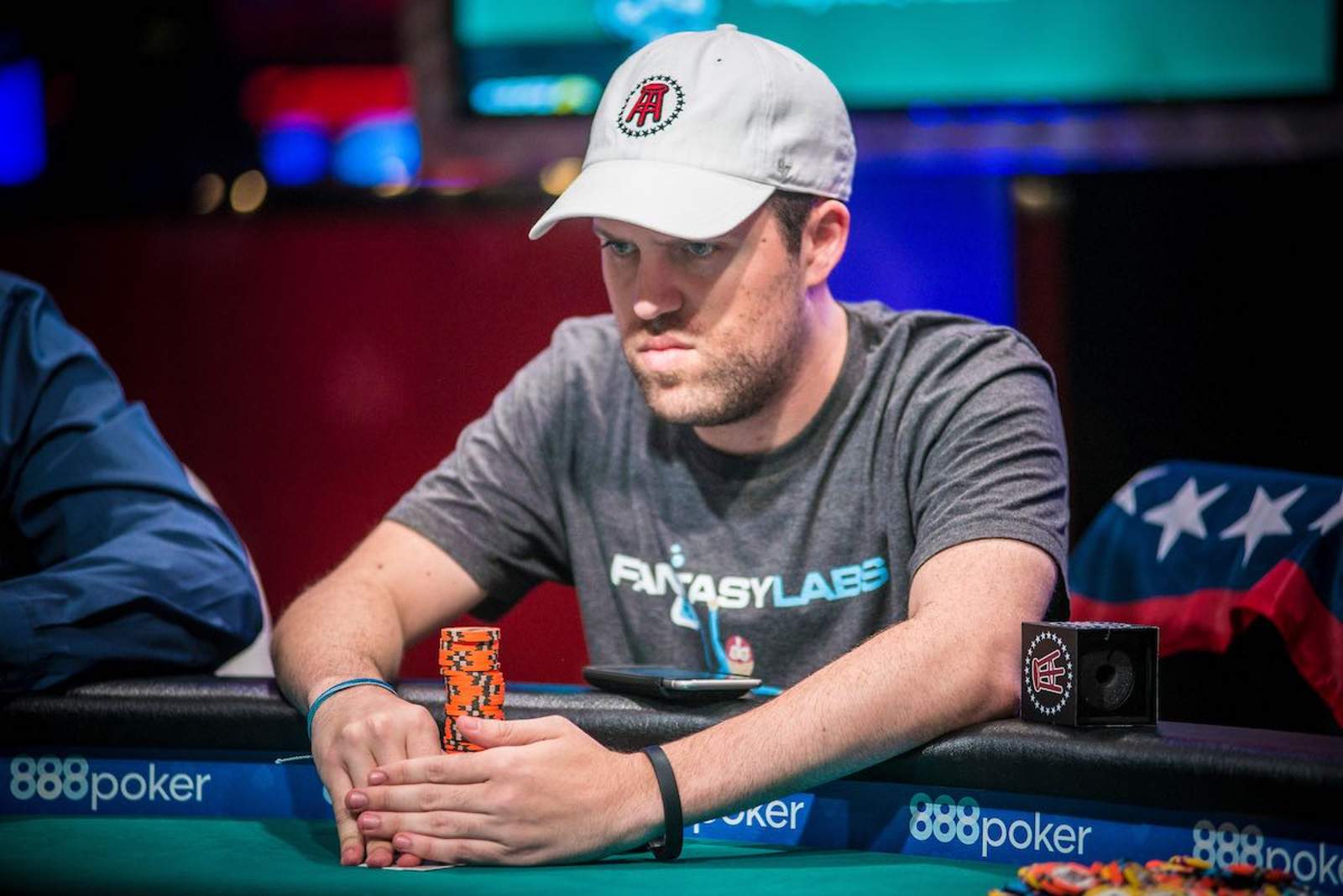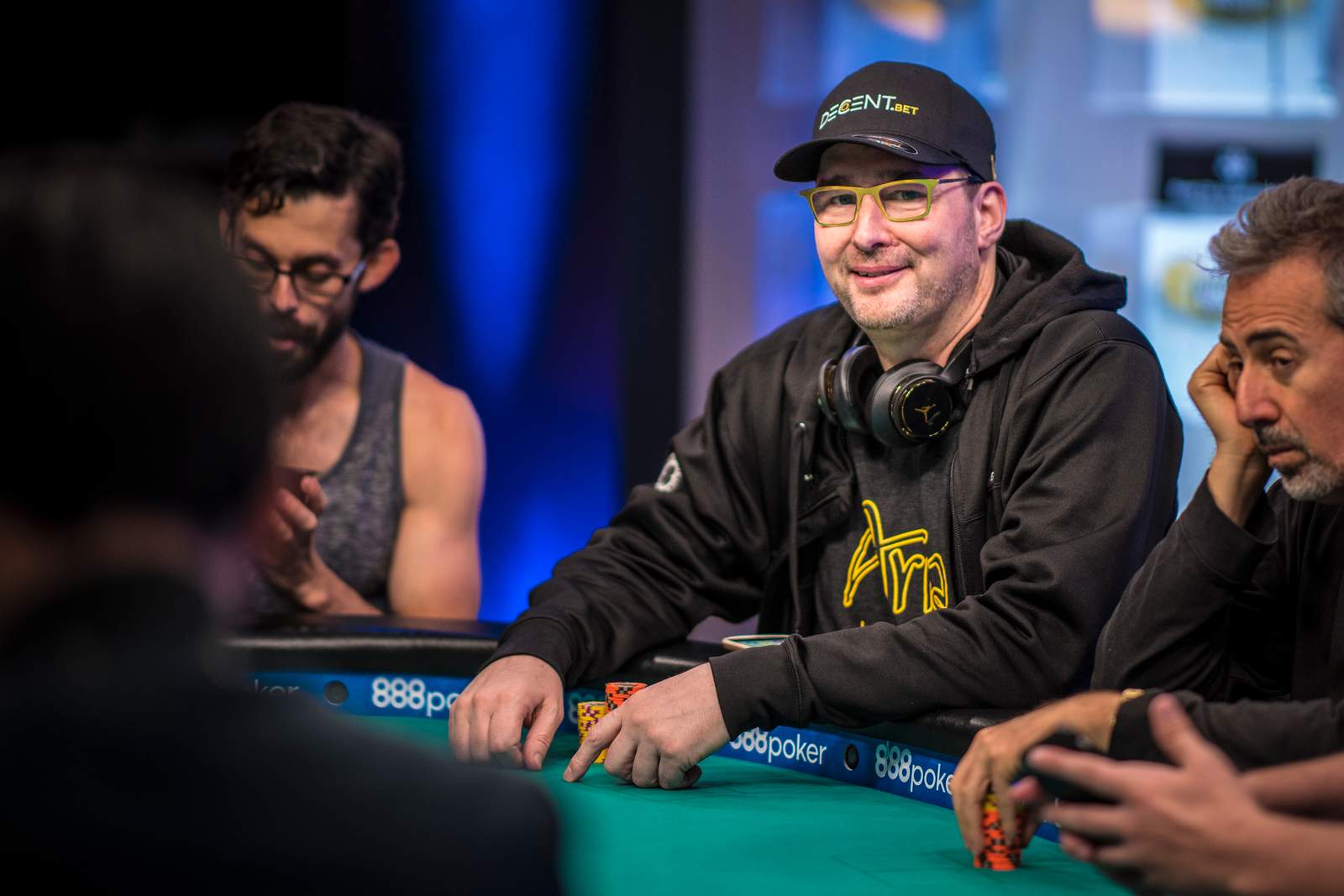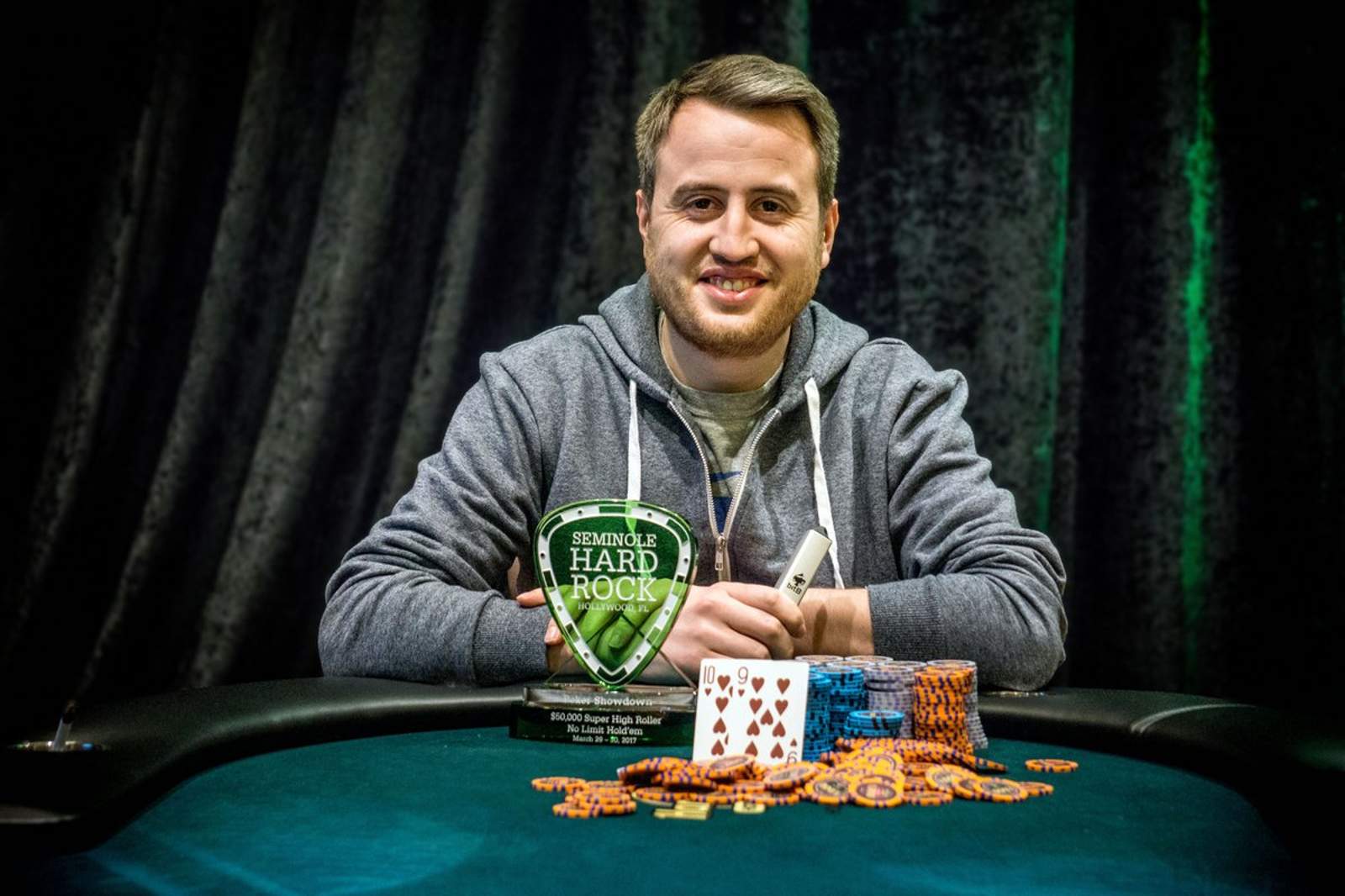Related Articles
"Barstool Nate" New Favorite on PokerGO Stream
Phil Hellmuth, $1,500 Shootout Live on Twitch
Through The Lens of Drew - Go Big or Go Home
Only once in a while does a broadcaster become synonymous with a brand – Howard Cosell with Monday Night Football, Harry Caray with the Chicago Cubs and after 15 years behind the broadcast desk Mike Sexton is the face of the World Poker Tour.
His love for the game hasn’t diminished – he’s just as excited for a final table today as he was for the first one. “After 15 years, I love watching final tables play out. Because for most guys it’s truly life-changing money,” he said. “I feel so good when I see that happen – this guy’s life is completely changed now. He’s got a big bankroll; he can buy a house, and his family doesn’t worry about the bills. It gives me a good feeling when I see it happen.”
“When Steve Lipscomb hired us he wasn’t looking for sports commentators to do poker, he was looking for poker players to do commentary,” Sexton added. “Vince and I had been playing poker all our lives, so we’re poker guys that just got into commentary. I’ve been there ever since, and hopefully I can keep doing it a few more years.”
Sexton turns 70-years-young this year, an age where some have been enjoying retirement for more than a decade, but Sexton doesn’t show any signs of slowing down. “My dad told me a long time ago, ‘Don’t ever retire if you are healthy and you enjoy what you are doing.’ He used to teach ballroom dance and loved doing it, then he retired and always regretted it,” Sexton said.
“He said, ‘Just keep working,’ and truthfully I don’t consider what I do work,” said Sexton. “Honestly, I’m blessed to be a commentator on the WPT, to travel to nice places, and it’s still fun for me to call a final table.”
Mike Sexton studying notes before a final table broadcast. (Photo: WPT)
But Sexton hasn’t limited himself to the media side of poker; he’s arguably had the best few years of his career as a player recently. He won his first WPT title in November 2016 at the Playground event in Montreal – becoming the second-oldest player behind Doyle Brunson to win a WPT title –, finished in fourth place at the LAPC Main Event and followed that up with a deep run at the Bay 101 Shooting Star Classic.
“I’ll be honest; I really don’t think I’m playing any different than I did in the past,” he said. “This year everything clicked for me where I won the races I was in, I outdrew people a couple of times in tournaments and I never took bad beats – that never happens to me.”
“Usually I’m more taking the bad beat and walking out the door, but I won in Montreal everything came my way,” he added. “I outdrew people four or five times to get to the final table and it was fortunate for me the way things fell into place. I think it was destiny, honestly, I was just luckier in that event.”
“It’s been a good year for me and you know it’s fun to go deep in tournaments instead of getting knocked out and telling bad beat stories,” continued Sexton. “It’s just been my year; I don’t really think I’ve done anything differently. I might have stolen a few more pots this year than I have in the past.”
Sexton entered his second career as a broadcaster after 25 years of playing poker and no experience hosting a TV show. Following 40 years in poker, it’s natural to wonder if Sexton thinks of himself as a player or media. “I think it’s a combination of both,” he said.
“I was a professional player for 25 years before I got the job at the World Poker Tour. Where I grinded 60 to 80 hours a week – finding cash games and tournaments all that time,” Sexton said. “So I’m proud that I’ve done that, I think players respect me because they know that I’ve done it.”
“I’m very proud that I helped get the World Poker Tour underway, so to speak. I’ve been here for 15 years because, truthfully, the World Poker Tour changed the poker world forever,” said Sexton. Forget Moneymaker, forget online poker, it was the World Poker Tour putting poker on TV in primetime on a weekly basis that got the whole nation wowed by it. Then Hollywood behind it and it just took off from there.”
“A lot of people have no idea what it was like before the World Poker Tour came around. In 1999, there were 398 players in the Main Event of the World Series, for example. You couldn’t find a No Limit Hold’em game anywhere in the country on a regular basis – nowhere,” Sexton said. “You could see them at the World Series inside cash games, and they’d have some tournaments of No Limit, but you couldn’t find a game anywhere on a daily basis. Now, all you see is No Limit Hold’em in every casino you go to, and the reason for that is, that’s the game played on the World Poker Tour. If the World Poker Tour started out with Seven Card Stud, you’d see Seven Card Stud in every casino nowadays.”
The World Poker Tour’s growth has been phenomenal in an industry where 15 years is a lifetime. Countless tours and poker shows have come and gone while the WPT continues to grow with the WPTDeepstacks, regional tours, and WPT500 events.
“Over the last two years since Adam Pliska has taken over, you’ve seen the World Poker Tour go global, and I mean really global,” said Sexton. “You know, we called ourselves the World Poker Tour the first couple of years, and we had one event in Paris at the Aviation Club. Honestly, that event was huge to us because it gave us a global start.”
“But now we have expanded so much globally over the last couple of years that I’m going to countries around the world, and the show is on TV in 66 countries. The World Poker Tour is definitely the number one brand in global poker – there is no question about it.”
Mike Sexton in China during a World Poker Tour event. (Photo: WPT)
Sexton had a front row seat to witness the growth and evolution of the game. “I’ve seen every final table in the history of the World Poker Tour, never missed one, whether I was in the commentary booth or a few times at the final table. So, I’ve seen who’s winning, and I’ve seen why they’re winning,” said Sexton.
He saw the game move from a strategy of survival during the tournament and hope for a rush at the last couple of tables to win. “I was making the money a lot, but it seemed to always be for a min-cash,” he said. “Players now understand the value of chips. They understand the chips are power and when you get them, you can dominate the table to get more chips.”
“So what happens now, early on in tournaments, is these young guys they don’t care about survival. They care about accumulating chips, so they’re whammin’ and bammin‘ right from the beginning to try to accumulate chips,” he said. “The aggressive players shoot for it right out of the gate, and there’s a good chance they’re gonna get knocked out early. If they do, they don’t care. They just go on to the next one. But in case they get to the final table with chips, they’re going to be a force. And that’s a fact.”
Sexton has noticed as the events grew and began to take place over multiple days that younger players had an advantage over the old guard of players.
“It’s a young man’s game because they can stand it – they can put in the hours. When I was young, I’d play around the clock and never think anything about it,” he said. “Now, it gives me chills to play that long and I’m aching for two days.”
“Stamina is the number one factor,” Sexton continued. “Staying sharp that long is something they can do better, and that’s why they have an edge. I’ve taken a bet for the last six years that somebody over 40 will win the WSOP Main Event. I took 10-1 on it and lost every year. There hasn’t been a guy over 40 winning that tournament since 1999 (Noel Furlong).”
“But I’m going to keep taking the bet. So, all you guys out there that want to keep buying the 10-1, please come and see me before the World Series Main Event starts cause I will give you some action.”
Related Articles
"Barstool Nate" New Favorite on PokerGO Stream
Phil Hellmuth, $1,500 Shootout Live on Twitch
Through The Lens of Drew - Go Big or Go Home
Dietrich Fast & Adrian Mateos Chop SHR Super High Roller
WSOP Announces 2017-2018 Domestic Circuit Schedule










